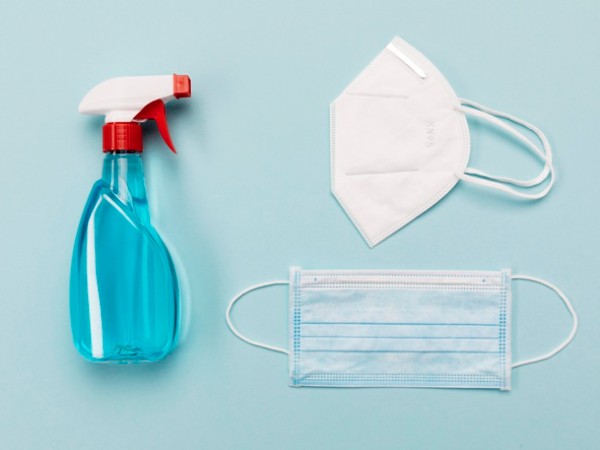Just In
- 5 min ago

- 8 hrs ago

- 8 hrs ago

- 12 hrs ago

Don't Miss
- Sports
 WCL: How to buy Tickets for World Championship of Legends?
WCL: How to buy Tickets for World Championship of Legends? - Finance
 625% Dividend, 1:10 Split, 3 Bonus; FMCG ITC Makes Big Acquisition Announcement; Stock Target Prices In April
625% Dividend, 1:10 Split, 3 Bonus; FMCG ITC Makes Big Acquisition Announcement; Stock Target Prices In April - Movies
 Maidaan Box Office Day 10 Prediction: Ajay’s Sports Drama To See Growth & Cross Rs 31Cr Mark Today
Maidaan Box Office Day 10 Prediction: Ajay’s Sports Drama To See Growth & Cross Rs 31Cr Mark Today - News
 Chinese President Xi Jinping Orders Biggest Military Reorganisation Since 2015
Chinese President Xi Jinping Orders Biggest Military Reorganisation Since 2015 - Education
 Exam Pressure Does Not Exist; Studying Punctually is Crucial; Says Aditi, the PSEB 2024 Topper
Exam Pressure Does Not Exist; Studying Punctually is Crucial; Says Aditi, the PSEB 2024 Topper - Automobiles
 Suzuki Swift Hatchback Scores 4 Star Safety Rating At JNCAP – ADAS, New Engine & More
Suzuki Swift Hatchback Scores 4 Star Safety Rating At JNCAP – ADAS, New Engine & More - Technology
 Dell Introduces AI-Powered Laptops and Mobile Workstations for Enterprises in India
Dell Introduces AI-Powered Laptops and Mobile Workstations for Enterprises in India - Travel
 Journey From Delhi To Ooty: Top Transport Options And Attractions
Journey From Delhi To Ooty: Top Transport Options And Attractions
COVID-19: What Is Long COVID? Most Common Post-COVID Symptoms And How To Manage It
There have been several reports of COVID-19 patients who did not require hospitalisation are complaining about lingering post-recovery health issues, which include COVID-like symptoms of mild to moderate fever, body ache, breathlessness, coughing, heaviness in the chest, chronic fatigue, joint pains, headache, brain fog, insomnia etc.
As recovery rates continue to rise in India, doctors are now warning that people who have recovered from the coronavirus are at the risk of certain infections and chronic ailments, which could sometimes last for a few weeks, or even months [1].
What Is Long COVID?
While coronavirus symptoms may pass quickly for most, some people can suffer from long-term effects [2]. Long COVID or post-COVID syndrome is the term used to describe the impact of COVID-19 that continue for weeks or months beyond the initial illness, with some experts saying it to be over four weeks and some say it more than it is more than 12 weeks [3].

Some experts have said that there are two stages to what is commonly known as Long-COVID, and they are as follows:
- Ongoing symptomatic COVID-19, symptoms that last 4-12 weeks.
- Post-COVID-19 syndrome, symptoms that last for more than 12 weeks and cannot be explained by another diagnosis.

The symptoms of COVID-19 may appear similar to the common cold and flu, but the virus has a severe impact on our health, that long-COVID can affect your whole body, including the heart, brain, and the gut.
According to studies, the extent of the damage caused by post-COVID-syndrome could affect 1 in 10 Indians after the second wave of coronavirus ends [4].
Here are some common symptoms that you may experience, which are entirely normal.
Long COVID Symptoms
If you have had COVID-19 and you have recovered, you may find that you have continuing symptoms that last for weeks or months, such as the following [5]:
- Breathlessness
- Extreme tiredness (fatigue)
- Problems with memory and concentration, also known as brain fog
- A cough that has been ongoing since you have had COVID-19
Other common Long COVID symptoms are as follows:
- Difficulty sleeping (insomnia)
- Dizziness
- Joint or muscle pain
- Chest pain or tightness
- Heart palpitations
- Depression and anxiety
- Tinnitus
- Earaches
- Vomiting
- Diarrhoea
- Stomach-ache
- Loss of appetite
- A high temperature
- Cough
- Headaches
- Sore throat
- Changes to the sense of smell or taste
- Rashes
- Insomnia
- Renal damage
Long COVID symptoms in children are as follows:
- Multisystem Inflammatory Syndrome or Paediatric Inflammatory Multisystem Syndrome (PIMS)
- Headaches
- Dizziness
- Nausea
- Seizures
- Gastrointestinal problems
- Insomnia
Black Fungus Vs White Fungus Vs Yellow Fungus: Everything You Need To Know
How Does Long COVID Symptoms Develop?
Some of the common Long COVID symptoms are the results of your being battered down by fighting off the coronavirus infection and is slowly recovering. During this period, you are most likely to feel fatigued, face breathing difficulties and so on. So why are you facing these problems?
- Fatigue: As your body had to work hard to produce antibodies and fight the deadly virus, your immune system would be overworked, causing your body to be weak and tired post-infection. Make sure you get plenty of rest and have a healthy diet [6].
- Shortness of breath: The coronavirus enters from our nose and impacts our respiratory system, damaging the delicate tissue of the lungs rapidly, disturbing their normal function. This causes your lungs to work harder, resulting in breathlessness.
- Insomnia: Restlessness and lack of sleep can be due to stress and anxiety. Also, a severe respiratory illness does affect your sleeping pattern [7].
- Loss of smell or taste: Loss of smell and taste is an initial symptom of COVID-19, and for most, it becomes normal after 14 days. It is recommended to smell different things in a day to improve your sense of smell.
- Chest pain: A common symptom of COVID-19, some people can experience chest pain that lasts beyond their initial COVID-19 infection or that starts in the weeks after they have had the virus [8]. Mostly, this type of chest pain is due to muscle weakness/soreness caused by the virus.
Note: If you experience any new type of chest pain, it is important to get medical advice to rule out any heart or lung health problems.

How To Manage Long COVID Symptoms?
The effect of Long COVID symptoms on the organs are different from person to person, depending upon their lifestyles (sedentary or active), their immune system and functioning of their organs [9].
Studies have found that older people, women, and those who had five or more symptoms in the first week of becoming ill with COVID-19 were more likely to develop Long Covid. It affects around ten per cent of 18-49-year-olds who get COVID-19, increasing to 22 per cent of people over 70.
The first step towards managing Long COVID is by recognising the symptoms and their triggers and try to avoid those things. The next step is to exercise for a bit (walking, moving your hands and legs et.) and eat a well-balanced, healthy diet [10].
Consult your doctor for the right advice, and they may recommend lifestyle advice, including rest, sleep hygiene, healthy diet, vitamin D, multivitamins, moderating alcohol intake, and smoking cessation as supportive measures.
-
 pregnancy parentingMysterious Pneumonia Outbreak In China: What Are The Long-Term Effects Of Pneumonia In Children?
pregnancy parentingMysterious Pneumonia Outbreak In China: What Are The Long-Term Effects Of Pneumonia In Children? -
 healthCan You Get Back COVID-Related Loss Of Sense Of Smell And Taste (Parosmia)? Looks Like You Can!
healthCan You Get Back COVID-Related Loss Of Sense Of Smell And Taste (Parosmia)? Looks Like You Can! -
 healthDid Covid-10 Vaccination Increase Risk Of Sudden Deaths In Young Adults? ICMR Finds This..
healthDid Covid-10 Vaccination Increase Risk Of Sudden Deaths In Young Adults? ICMR Finds This.. -
 wellnessDelhi Air Pollution, Air Quality Very Poor: Do Covid Masks Help Reduce Pollution Side Effects?
wellnessDelhi Air Pollution, Air Quality Very Poor: Do Covid Masks Help Reduce Pollution Side Effects? -
 healthNobel Prize 2023: Scientists Behind The COVID-19 mRNA Vaccines Wins
healthNobel Prize 2023: Scientists Behind The COVID-19 mRNA Vaccines Wins -
 healthWhat Is Disease X? 20 Times More Deadlier Than Covid 19; Can Cause 50 Million Deaths, Does It Have Vaccine?
healthWhat Is Disease X? 20 Times More Deadlier Than Covid 19; Can Cause 50 Million Deaths, Does It Have Vaccine? -
 healthCOVID-19 Vaccines and Heart Attacks: New Studies Show Different Results; What Are They?
healthCOVID-19 Vaccines and Heart Attacks: New Studies Show Different Results; What Are They? -
 healthDo You Pick Your Nose? Stop! It Can Increase COVID Risk
healthDo You Pick Your Nose? Stop! It Can Increase COVID Risk -
 healthEris Variant: WHO Alarms New Covid Wave; Should India Be Concerned About This Pandemic
healthEris Variant: WHO Alarms New Covid Wave; Should India Be Concerned About This Pandemic -
 healthVitamin D Deficiency Linked With Increased Risk Of Long COVID
healthVitamin D Deficiency Linked With Increased Risk Of Long COVID -
 healthCOVID Surge In India: Do You Need A COVID-19 Booster Shot?
healthCOVID Surge In India: Do You Need A COVID-19 Booster Shot? -
 healthCOVID-19: IMA Cites 3 Reasons Behind Recent Surge In Covid-19 Cases: What Are They?
healthCOVID-19: IMA Cites 3 Reasons Behind Recent Surge In Covid-19 Cases: What Are They?


 Click it and Unblock the Notifications
Click it and Unblock the Notifications




